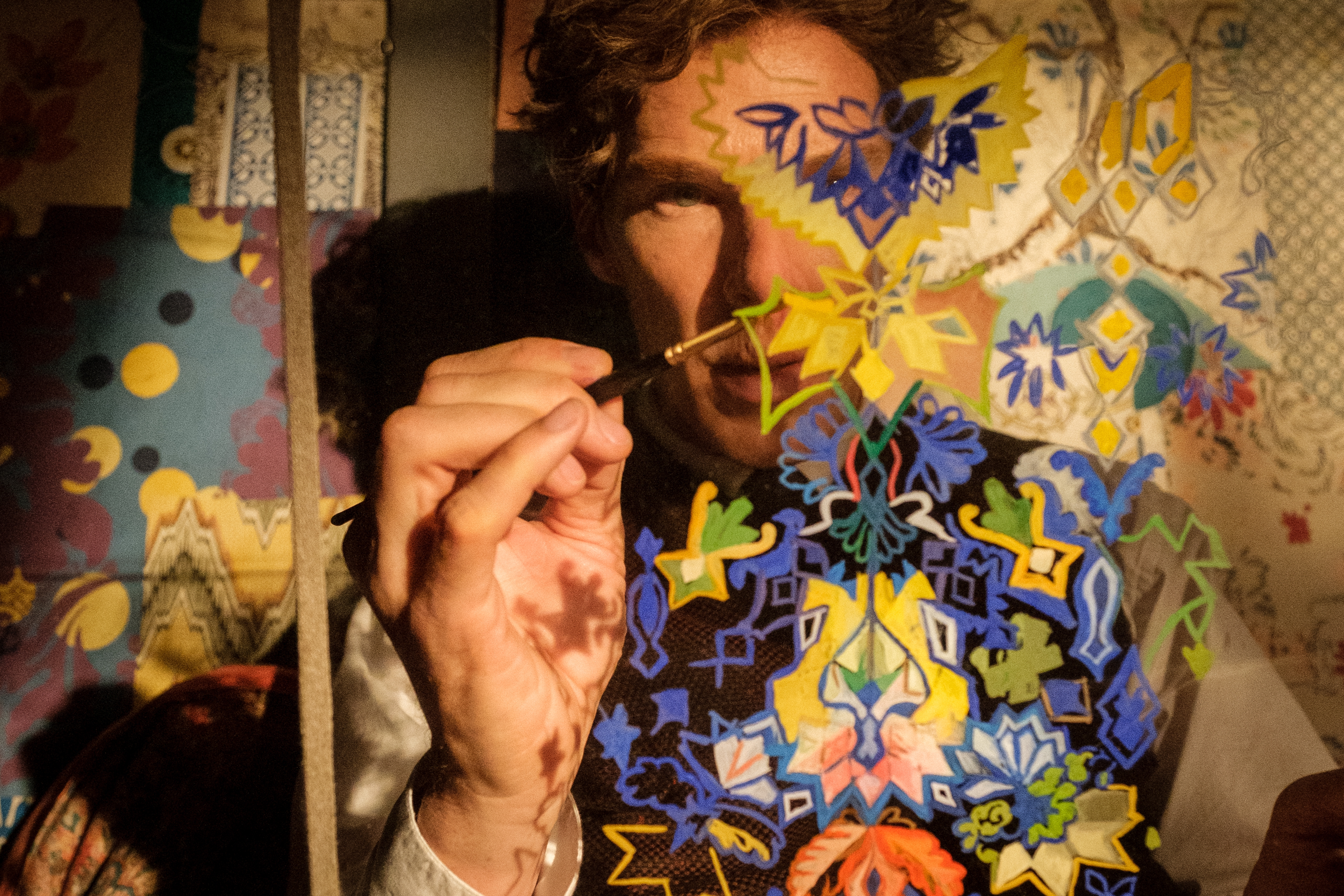Benedict Cumberbatch and Claire Foy do their best to electrify a drab biopic
The Electrical Life Of Louis Wain is about a famous artist, but his art is the least interesting part of the movie

Audiences unfamiliar with Louis Wain could be forgiven for assuming that a biopic about his “electrical life,” unfolding in the late 19th and early 20th century, might look something like The Current War, especially since both films star Benedict Cumberbatch. Although Wain did have some scientific interests, and even briefly fancied himself an amateur inventor, he’s remembered mainly for his many whimsical paintings and drawings of cats, which grew increasingly ornate (sometimes verging on psychedelic) over the years. He was also a notable eccentric who may or may not have had schizophrenia (people still argue over ostensible evidence in his work, à la Van Gogh) and Electrical Life, for a while, seems admirably determined to focus on peculiarities rather than serve up the usual Wiki-style checklist. At its best, the film arguably needn’t be about Louis Wain at all, making it a real disappointment when biopic convention ultimately kicks in. Even then, there’s less about feline-centric art than a fan would expect.
Early scenes strongly suggest an outright comedy, with Cumberbatch making a meal of Wain’s somewhat antisocial tendencies. We first encounter him in 1881, when an editor played by Toby Jones offers to make Wain—an artist as speedy as he is talented (he uses both hands simultaneously, a pen in each)—the paper’s staff illustrator. Despite having five younger sisters to provide for, Wain initially declines, fearing that the responsibility would prevent him from pursuing his various other passions; these include boxing, an opera he’s written, and some electrical patents. He quickly changes his mind, however, upon learning that his eldest sister, Caroline (Andrea Riseborough), has hired a governess to teach the younger girls. Within just a few minutes, Wain finds this woman, Emily Richardson (Claire Foy), hiding in an armoire, fires her, falls for her, re-hires her, and resolves to take the staff position after all, so that he can afford to marry her. That she’s a decade older than him, and of a decidedly lower class, makes no difference to the lovers, even as it sends a scandalous shockwave through neighboring streets of London.
Still no cats, you may have noticed. Electrical Life devotes most of its first hour to Wain and Richardson’s courtship and marriage—a relationship so delightfully goofy that screenwriters Will Sharpe (who also directed; he’s best known for the U.K. series Flowers) and Simon Stephenson (whose previous credits include “additional material” for Paddington 2 and helping to devise Luca’s story) almost certainly invented most of it from whole cloth.
Cumberbatch, who’d been emanating a brusque, distracted intensity, loosens up from the moment that Wain first sets eyes on Richardson, shifting into a lovably dithering register. He’s ideally matched by Foy, channeling the young Emma Thompson: sweet and sardonic, with a paradoxically semi-apologetic forthrightness. Dialogue becomes dryly funny (“I tend to have nightmares about not being able to get out of places. I once spent an entire dream stuck in a very complicated barn”), and Sharpe executes such purely visual humor as an impassioned co-ed discussion in a men’s lavatory that finds both parties silently flanking a man who unexpectedly emerges from one of the stalls and proceeds to wash his hands at the sink in between them, without commenting on the lady’s presence or even acknowledging her in any way. For a while, you could very easily forget that you’re watching a biopic.
You are, though, and the facts of Wain’s life, alas, don’t facilitate a charming romance. He’s alone again all too soon, with only a cat named Peter for company; this inspires him to draw anthropomorphic kitties engaged in various human activities—the feline equivalent of Cassius Marcellus Coolidge’s Dogs Playing Poker. While Wain’s work becomes enormously popular for a time, the film doesn’t really explore it in any detail, choosing instead to dance around the question of his mental state over a period of decades. (The film covers nearly 50 years of his life, with Cumberbatch in heavy old-age makeup toward the end.) Omniscient voiceover narration (spoken by Olivia Colman, who has no onscreen role) functions as an amusing counterpoint in the first half. Later, it struggles to provide shape to a series of largely formless snapshots and interludes.
Meanwhile, Taika Waititi shows up for two minutes as American newsman Max Kase, and Nick Cave makes a cameo as H.G. Wells, urging radio listeners to help Wain out in what amounts to the celebrity GoFundMe tweet-link of a century ago. The more Electrical Life conforms to what one would expect of a Louis Wain biography, the less idiosyncratically compelling it becomes. An entirely fictional story loosely inspired by the man and his wife, but beholden to nothing, might have been genuinely electrifying.